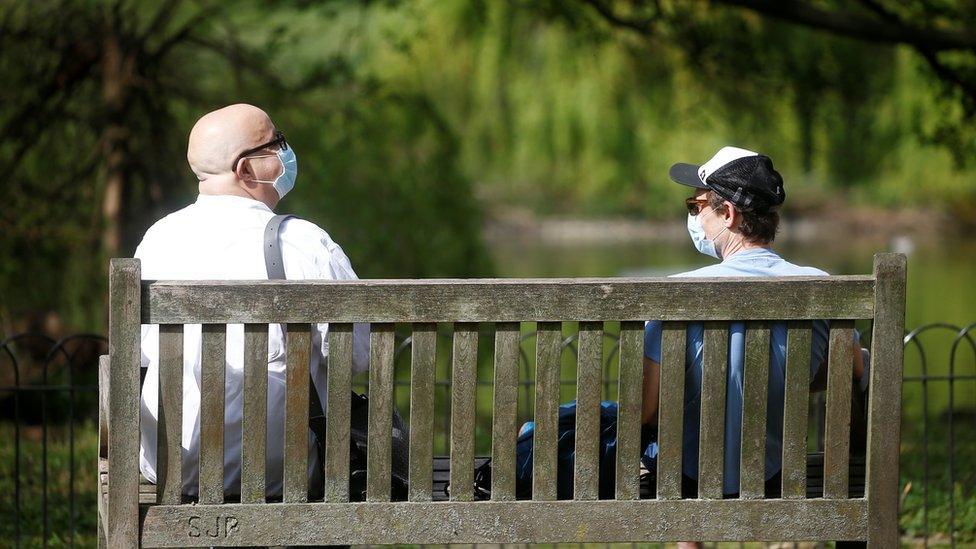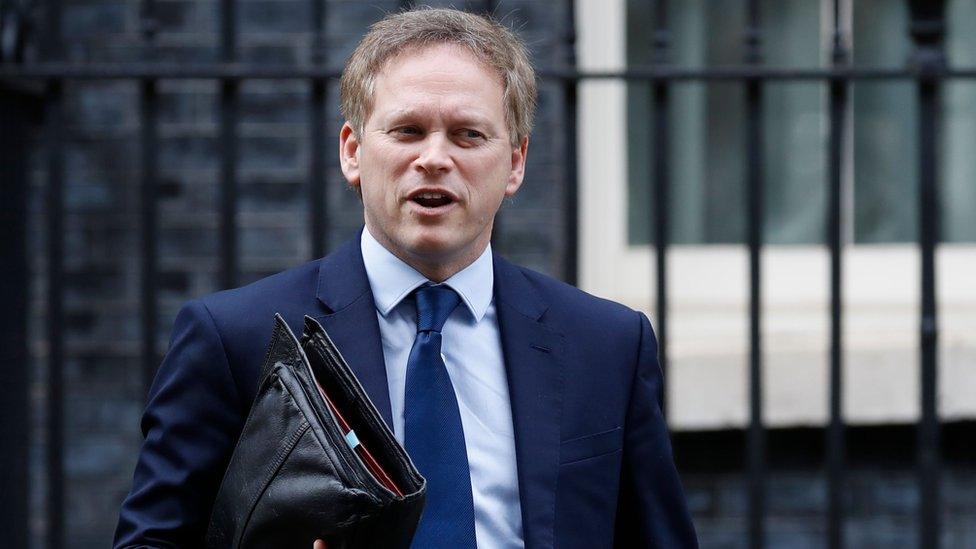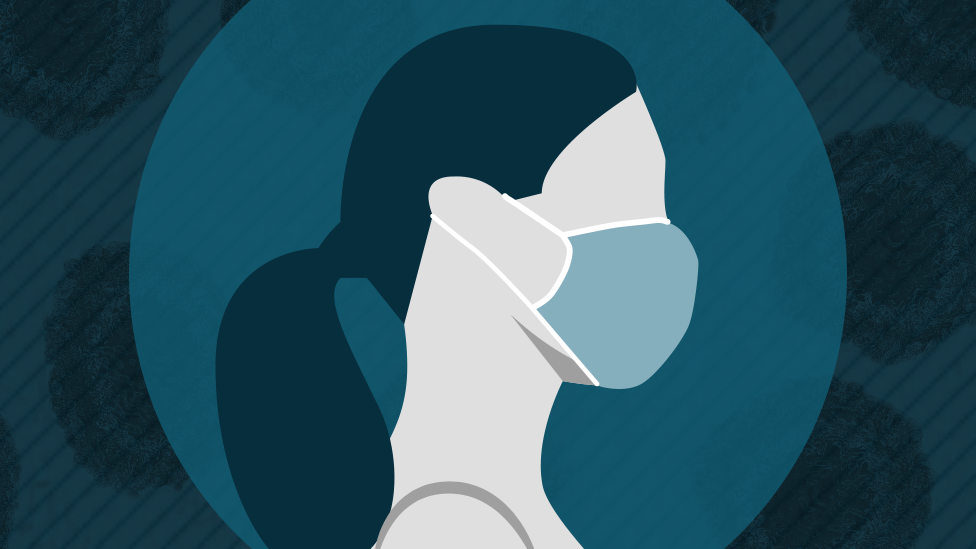Coronavirus: UK to be 'guided by scientists' on face masks
- Published
- comments

The public will not be told to wear face masks to stop coronavirus unless the government's scientists say it is necessary, a minister has said.
Grant Shapps said the evidence on whether masks work was "quite mixed".
It comes after London Mayor Sadiq Khan called for people to wear non-medical face masks - such as scarves or bandanas - in public as "additional protection" to social distancing.
Masks have been made compulsory in some places, including in New York.
On Friday Mr Khan - who has urged the UK government to change its guidelines on face masks - said masks should be worn when people cannot keep two metres apart such as on public transport or while shopping.
"Wearing a non-medical facial covering makes it less likely you may inadvertently give somebody else Covid-19," he told BBC Breakfast.
"What I'm lobbying for is, at the moment, when you can't keep your distance, wear a non-medical facial covering," he said.
"But when it comes to exiting lockdown, we may need to have all of us wearing it as well."

A SIMPLE GUIDE: How do I protect myself?
AVOIDING CONTACT: The rules on self-isolation and exercise
HOPE AND LOSS: Your coronavirus stories
LOOK-UP TOOL: Check cases in your area

Mr Khan referred to the Centre for Disease Control (CDC) in the US, which has now recommended people to wear cloth face masks when outside their homes.
In Germany, face masks are also recommended to be worn in shops and on public transport, while in countries including the Czech Republic and Slovakia face masks are compulsory.
It is important that the UK is "no longer an outlier" compared with other countries, Mr Khan said.
'More harm than good'
The UK government's social distancing guidelines do not mention face masks.
Asked about the issue on BBC Breakfast, Transport Secretary Grant Shapps said the government's scientific advisers - a sub-committee of the Scientific Advisory Group for Emergencies (Sage) - were looking at the evidence on face masks.
"We need to absolutely be guided by the scientists," he said.

Transport Secretary Grant Shapps says politicians should not be "second guessing" scientists' advice
Mr Shapps added that Mr Khan "acknowledges... that it is possible that wearing of masks could do more harm than good in certain situations".
"There is also evidence out there that wearing it could be counter-productive so, rather than sort of jump to the incorrect conclusion and do more harm than good, I think it's right to ask the scientists to provide guidance on it.
"If the scientists come out and say yep this is actually what people need to do, then fine we will absolutely ask people to do that. But until they do do that and unless they do that that isn't the message that we're going to be sending."
It comes as the number of confirmed coronavirus cases in the UK has now reached more than 108,000, latest figures on Friday showed., external A total of 14,576 people with the virus have died in hospital.

Do facemasks help or hinder?
By Philippa Roxby, BBC News health and science reporter
Apart from healthcare workers, the UK government has never advised people to wear face masks during this pandemic.
It has consistently said the scientific evidence for recommending them is weak, and on Thursday Prof Chris Whitty - the UK's chief medical adviser - repeated that point again.
The World Health Organization agrees., external It says only two groups of people should wear protective masks - those who care for people with the coronavirus, and those who are sick and showing symptoms.
It believes masks aren't useful for the general public because they offer a false sense of security. Why? Because they don't necessarily protect against infection, particularly if homemade or loose-fitting, and they may encourage people not to follow other advice to keep 2m away from others and wash hands frequently.
At the moment, UK officials agree - but they can't stop people wearing them if they choose too, particularly shop workers who may find it difficult to socially distance.
They say they will now look at the evidence again.
Should I wear a mask to stop coronavirus?

- Published16 March 2022
